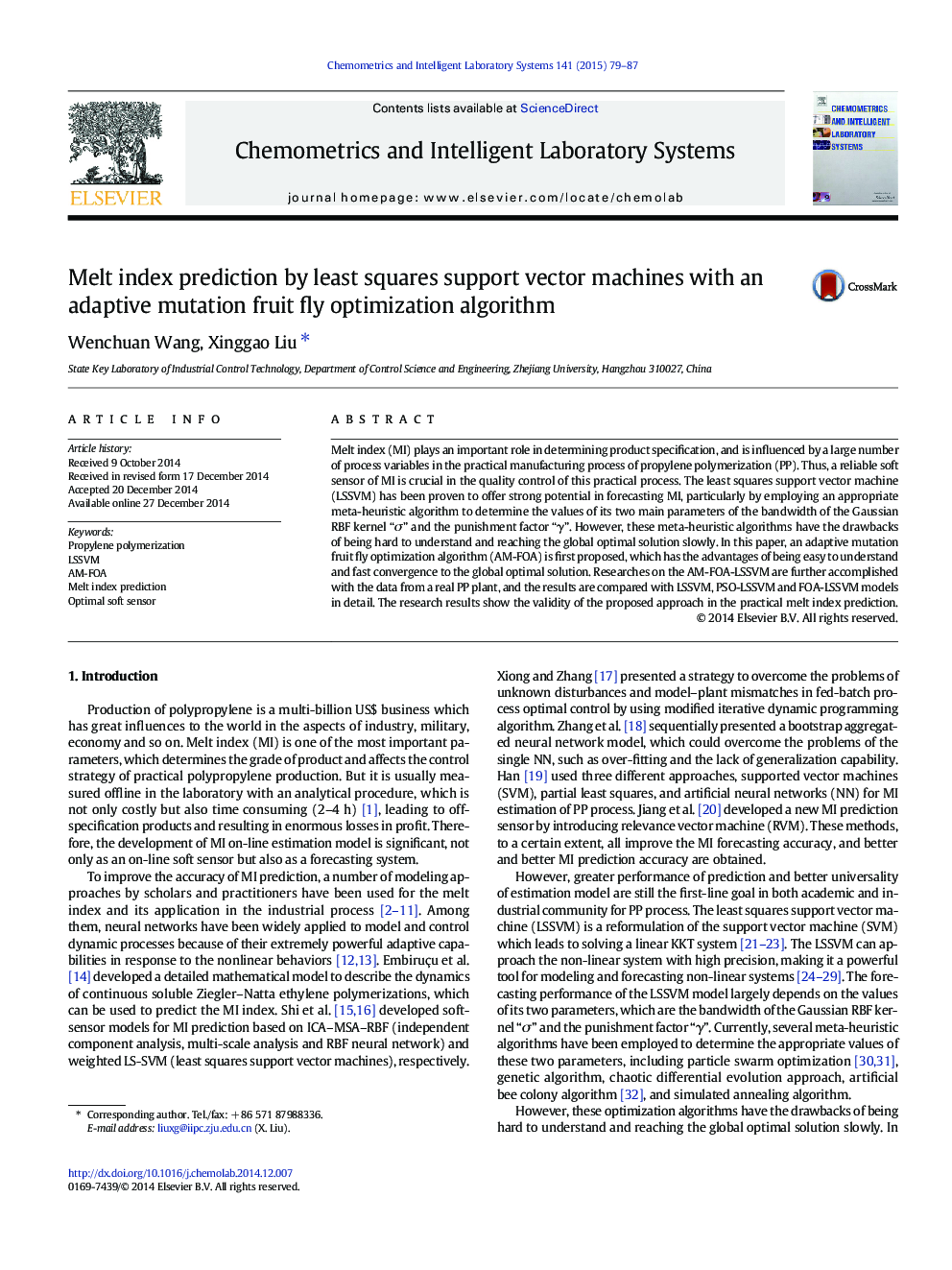| Article ID | Journal | Published Year | Pages | File Type |
|---|---|---|---|---|
| 1179384 | Chemometrics and Intelligent Laboratory Systems | 2015 | 9 Pages |
•An adaptive mutation fruit fly optimization algorithm (AM-FOA) is first proposed.•This algorithm is easy to understand and to be written into program code.•Research work proves the reliability and efficiency of the AM-FOA.•The AM-FOA-LSSVM model can predict MI rapidly and accurately.•The AM-FOA-LSSVM model provides a reference to other soft-sensors.
Melt index (MI) plays an important role in determining product specification, and is influenced by a large number of process variables in the practical manufacturing process of propylene polymerization (PP). Thus, a reliable soft sensor of MI is crucial in the quality control of this practical process. The least squares support vector machine (LSSVM) has been proven to offer strong potential in forecasting MI, particularly by employing an appropriate meta-heuristic algorithm to determine the values of its two main parameters of the bandwidth of the Gaussian RBF kernel “σ” and the punishment factor “γ”. However, these meta-heuristic algorithms have the drawbacks of being hard to understand and reaching the global optimal solution slowly. In this paper, an adaptive mutation fruit fly optimization algorithm (AM-FOA) is first proposed, which has the advantages of being easy to understand and fast convergence to the global optimal solution. Researches on the AM-FOA-LSSVM are further accomplished with the data from a real PP plant, and the results are compared with LSSVM, PSO-LSSVM and FOA-LSSVM models in detail. The research results show the validity of the proposed approach in the practical melt index prediction.
